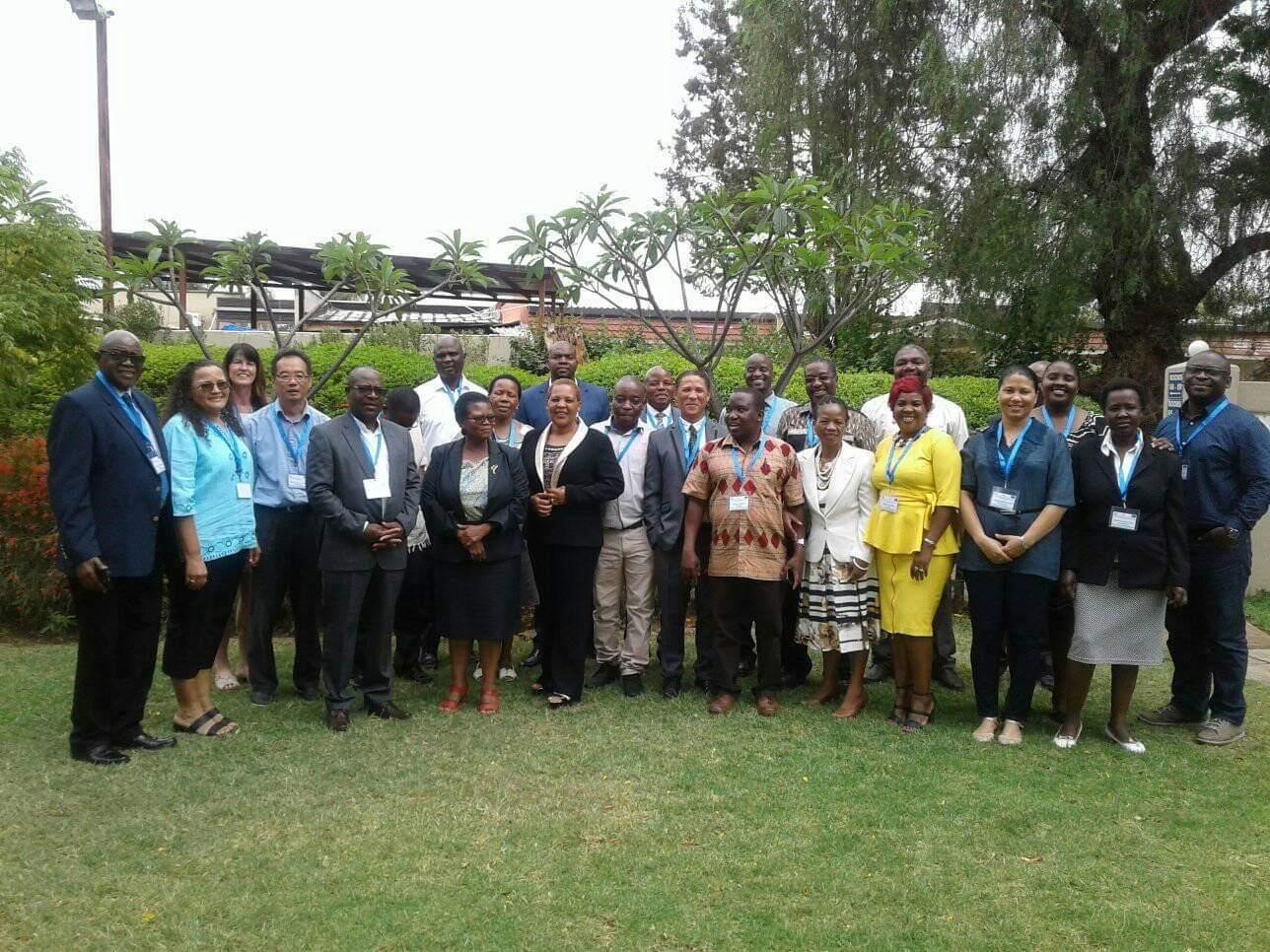
Introduction
The Centre for Coordination of Agricultural Research Development for Southern Africa (CCARDESA) jointly with the African Union Inter-African Bureau for Animal Resources (AU-IBAR) organised the 5th General Assembly and the Steering Committee of the Sub-Regional Focal Point (S-RFP) for the management of Animal Genetic Resources (AnGR) in Southern Africa from 26 - 29 November 2018, in Gaborone, Botswana. This workshop was convened under the framework of the implementation of the AU-IBAR Project “Strengthening the Capacity of African Countries to Conservation and Sustainable Utilization of African Animal Genetic Resources” which is funded by the European Union.
The overall objective of convening of the 5th General Assembly and the Steering Committee meetings on AnGR in the SADC region was to strengthen regional efforts in the implementation of the Global Plan of Action on AnGR for food and agriculture.
The specific objectives were to:
- Strengthen collaboration and coordination among the SADC AnGR stakeholders on the conservation and sustainable utilization of AnGR
- Formulate joint interventions for the conservation and sustainable utilization of AnGR in Southern Africa.
- Discuss the proposed development of a regional strategy on AnGR in the SADC region
- Identify ways to fast-track the implementation of supported initiatives especially those on transboundary breeds;
- Discuss the modalities (technical and administrative) of operating of the regional gene bank
- Discuss and agree on regional priorities.
The meeting was attended by 35 participants drawn from SADC stakeholders involved in AnGR management, comprising mainly National Coordinators from Botswana, Kingdom of Eswatini, Lesotho, Malawi, Mauritius, Mozambique, Namibia, Seychelles, South Africa, Zambia and Zimbabwe; representatives of: the Southern Africa Development Community (SADC), AU-IBAR and CCARDESA, Private Sector (Kalahari Donkey Milk Industries),Civil Society and Non-State Organizations (Heifer International), Livestock Registrar (Botswana) and Studbooks (South Africa), Breeder Associations (the Tuli Cattle Breeders Society of Zimbabwe) and representatives of higher learning Institutions (University of Stellenbosch and Lilongwe University of Agriculture and Natural Resources).
The meeting was officially opened by the Deputy Permanent Secretary (DPS) for Support Services, Mrs Mmadima Nyathi on behalf of the Honourable Minister for the Ministry of Agricultural Development and Food Security for Botswana, Mr Patrick Pule Ralotsia. The DPS outlined Botswana’s achievements in terms of promoting sustainable utilisation and conservation of Botswana’s farm animal genetic resources. A representative of the SADC Secretariat, stressed the important role of AnGR and the deliberate decision by the SADC Secretariat to develop a Regional Strategy on AnGR. Speaking on behalf of AU-IBAR, Dr Edward Nengomasha, indicated that the Genetics Project was coming to an end in July 2019. Therefore, there was need for regional beneficiaries to expedite the implementation of outstanding activities.
The General Assembly participants visited the Animal Genetic Resources Centre- Department of Agricultural Research in Sebele which is to be used as a regional gene bank. Participants got to see the equipment that was procured through the Genetics Project for the regional Gene Bank for Southern Africa. They also visited the Plant Genetic Resources Centre (in Sebele), a Beef Feedlot and an Organic Fertiliser Manufacturing Plant in Mmamashia which is processing the manure from the feedlot into organic fertilisers.
The General Assembly endorsed the activities for the 2019 S-RFP Work Plan.
Recommendations of the General Assembly
The General Assembly recommendations included the following:
- The planned development of a broad based AnGR strategy covering other livestock species including aquatic resources and pollinators (honey bees) to be led by the SADC Secretariat.
- The development of a Regional Strategy for AnGR should include resource mobilisation in order to ensure the sustainability of the Sub-Regional Focal Point.
- The expediting of the implementation of pending activities before the closure of the project.
- To ensure the sustainability of the process, meetings of the Steering Committee and the Sub-Committee of Animal Production, Range Management, Livestock Marketing and Animal Genetic Resources of the SADC Livestock Technical Committee should be held back to back.
- To ensure sustainability, each Member State should submit a sustainability plan by end of January 2019 on how AnGR activities are going to be supported beyond the lifespan of the genetics project.
- Stakeholders should share available information on various outputs to enable especially high level officials and heads of regional organizations to improve the funding of AnGR activities at national and regional levels and farmers to make informed decisions on AnGR.
- Prepare for a capacity building workshop on ABS and IPR for regional AnGR stakeholders to be supported by AU-IBAR.
- To facilitate reporting to the Commission on Genetic Resources for Food and Agriculture in February 2019, the country updates shall be compiled in a regional report on the GPA.
- Member States should urgently undertake the updating of information on DAD-IS and other related AnGR databases.
- A team comprising Zambian colleagues, Dr Benson Mwenya, Mr Dackson Zulu and Ms Petronella Halwiindi was tasked to consult the SADC Plant Genetic Resources Centre (SPGRC) to source gene bank governance documentation to enhance the management of the Regional Gene Bank for AnGR.
- In order to set up Herd Books, Member States were urged to take advantage of the offer made by South Africa, Namibia and Zimbabwe for technical assistance. A team comprising Mozambique, Malawi, Mauritius and Botswana, was set up to work on this.
- AU-IBAR to improve the study on the regional Regulatory Framework on Exchange, Use and Conservation of AnGR by incorporating observations on the risks from veterinary procedures which may restrict the movement of samples from other countries to the regional gene bank. Furthermore, to consider land use, climate change and related issues within the framework.
The participants extended their appreciation to the warm welcome of the Government of Botswana, CCARDESA and AU-IBAR for organisation of the meetings.
